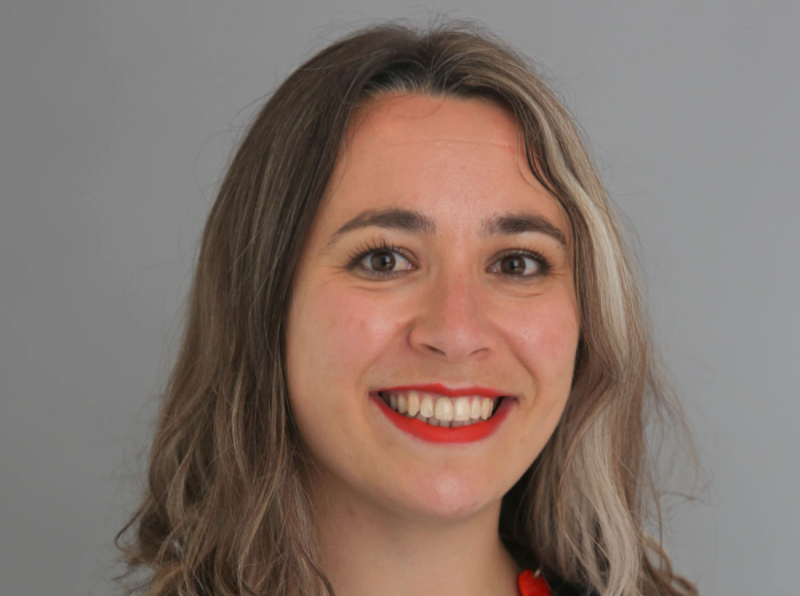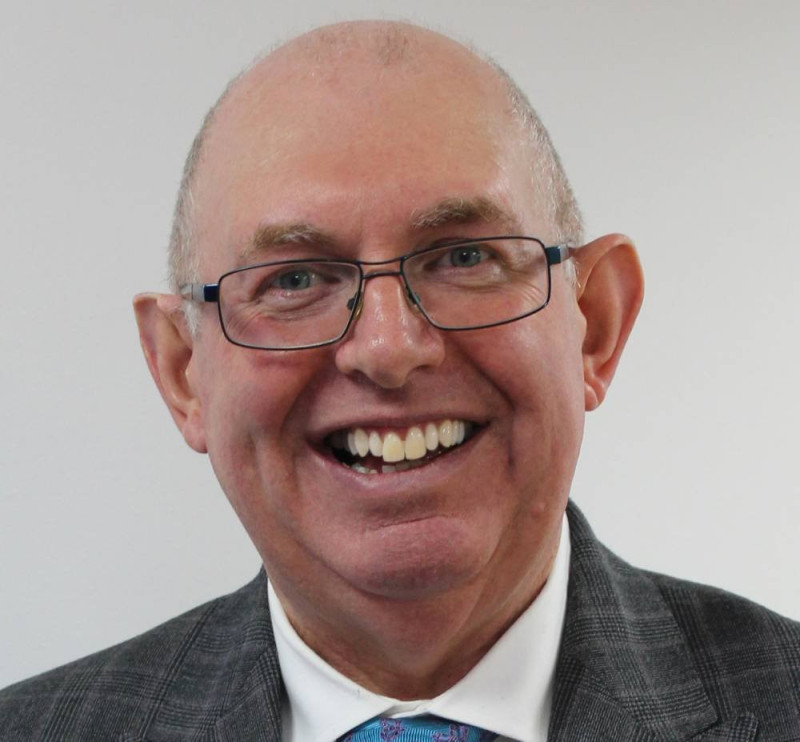In the News
One of the government’s favourite policy areas since Boris Johnson took office has been the environment. The UK hosted the United Nations’ COP 26 conference in Glasgow last year and subsequently, the Department for Education last month published its climate change and sustainability strategy for education and childcare providers.
The strategy is designed to mesh with the government’s domestic and international commitments to environmental policies such as net zero.
A theme present throughout the strategy is preparing children and young people to understand the challenges they will face as they grow older. Sustainability and climate change will touch every career, the strategy states.
The DfE has a series of initiatives for the strategy, most notably:
Introducing a natural history GCSE in 2025 to provide young people with a “further opportunity to engage with and develop a deeper knowledge and understanding of the natural world”
Requiring all new further education teachers to build sustainability into their teaching from 2023
Requiring every education setting to have nominated a “sustainability lead” by 2025
Making it so all capital funding bids for further and higher education will need to consider environmental impact, carbon reduction and adaptation measures
But is it enough? In the May edition of The Mark, the Education and Training Foundation’s national head of education for sustainable development Charlotte Bonner says the strategy is a good start which needs building on. The foundation last year released two pieces of work on sustainability in the FE and skills sector, which included the incredible finding that fewer than one in 200 FE students have access to such provision in A-Level geography and on science courses.
Also in May’s edition, the further and higher education sectors’ climate commissioner Steve Frampton warns the strategy’s success will depend on the Treasury stumping up enough cash so highly engaged providers and regulators can make it work.
Interview
We spoke with the Education and Training Foundation's national head of education for sustainable development Charlotte Bonner, who says the strategy lays strong foundations but needs more, especially for ITPs and adult education services.

Do you think what the DfE is proposing is going to be enough to shift the dial in terms of how much the sector can support sustainability and whether it will shift workforce attitudes about what we're doing for sustainability?
I think the fact that a year ago, we didn't have a sustainability team within the Department of Education and now we have one and that we have a strategy with commitments for the next eight years is incredibly positive. And it's happened very quickly. They've pulled together the strategy in a relatively short period of time off the back of COP 26. And they've gone through a lot of engagement to get the strategy launched. I think they've got a good group of people that are experienced and committed to education for sustainable development (ESD) to feed into the strategy development. There's a lot to celebrate and the foundations that it sets are solid.
In terms of workforce support, we were really pleased to contribute to the Occupational Standard that's referenced in the strategy when that was being developed by the trailblazer group last year, to ensure that it wasn't a missed opportunity for thinking about what kind of knowledge, skills and behaviours teachers need to integrate sustainability into their practice. That's a great sign because top-down frameworks such as these standards absolutely set the scene for how the sector operates. Embedding sustainability within initial teacher education is exactly right because 74 per cent of teachers told us that they haven't been adequately trained to bring sustainability into their teaching and learning practice. We've got around 90,000 educators who currently work in FE and training, the vast majority of whom haven't had that training.
We manage the Society for Education and Training (SET), and the professional standards have recently been revised to explicitly include ESD. It's about giving staff the time and the resources to really invest in training and to get comfortable with what is quite a complex issue; not just the core concepts of sustainability, but how you contextualise that for your specific role, and how you contribute positively through your role. I think there's a gap in how educators can access that kind of CPD because there isn't funding and time for them to do so. There isn’t anything specific within the strategy about providing current educators with these opportunities. although there's a commitment within the strategy for Department for Education (DfE) to bring sustainability into their commissioned continuous professional development (CPD) in future.
A big elephant in the room is curriculum. The Natural History GCSE is a great thing to offer but in terms of scale and how many learners that will reach, we're still missing the mechanisms to deliver what the strategy says, which is that all jobs will be touched by sustainability.
Everybody needs to know about these issues and how they contribute but this doesn't yet translate into qualifications – I don’t mean new sustainability qualifications, but relevant, current sustainability content woven across all qualifications. Teachers tell us the number one barrier to them bringing more sustainability into their teaching and learning is curriculum specifications. Our research shows that fewer than one in 200 learners are studying a course in FE that has explicit sustainability content. So that is a big driver of change and a big barrier that people are struggling with that isn't really in this iteration of the strategy.
One thing I was really interested in was the DfE said they’re going to annually review progress and what else needs to happen. So, it's not that this is it now for eight years. There’s a desire for iterative improvements and a learning mentality which is really welcome – test and learn and building knowledge is critical, at pace of course.
Everybody needs to know about these issues and how they contribute but this doesn't yet translate into qualifications
The strategy sends clear signals that education has a clear role in achieving our climate change goals. I think it lays a solid foundation, but there are some gaps, particularly for the training sector because although colleges are referenced throughout, there's been very little recognition of the broader role that training providers, adult education services, and other provider types can play. There are some gaps for the FE sector and some more broadly. But I'm delighted that we have what I think is a big step forward.
What has the ETF got planned in this area for the coming year?
We started last year, as it was the first time we had dedicated resource for ESD, with an insights and research piece to make sure we had a good baseline and to make sure that our work was really sector informed. We're about to launch a new Sustainability in the Curriculum suite of resources that will help educators and curriculum leads look at their ESD teaching learning practice and where that could be improved.
The next step for us is a CPD course for educators, helping people develop that mastery of how to integrate ESD into teaching and learning practice.
That sits alongside a bigger job of looking at the breadth of ETF's and SET's work, how we can embed sustainability throughout our broader offer so everyone gets relevant ESD content, not just those who sign up for an explicit ESD course. Instead, if you come on a leadership and governance course, or a technical education course, or an initial teacher education course, then you have that ESD content woven throughout, in a way that is relevant to that role.
And those resources will be available to all types of providers?
Absolutely. We're really keen to make sure that our work is accessible and inclusive to different individuals and different variety types in FE.
Opinion
Steve Frampton, climate commissioner for the further and higher education sector, measures up the pros and cons of the DfE's climate change strategy.

Navigating the Climate Curriculum Challenge
Let’s start with the positives. We have within the Department for Education an able and committed, well-led team who, despite political pressures, delivered their strategy on time, co-constructed with students and stakeholders. This helpful starting point should now be embedded in the operating frameworks of enthusiastic regulators including Ofsted and FE Commissioner. The climate emergency issue dominates young people’s thinking and is overwhelmingly at the top of their concerns, and without urgent holistic action at scale and pace, it will continue to give rise to unacceptable levels of eco-anxiety in our current and future students.
The strategy is not as challenging as many in FE desired and does not go far enough for many of our students and stakeholder partners. Critically its success will largely depend on whether Treasury quickly and efficiently commit significant levels of capital investment and resources, including trained technical expertise, to make it happen and meet the needs of our ambitious sector. Retrofitting the entire FE estate, and supporting innovative new builds, fit to deliver the exciting green skills agenda that FE can deliver will need that commitment and quickly.
Will GCSE Natural History meet the curriculum need? I think not. The FE version of the Carbon Literacy Project, widely used in many FE Colleges after the very successful Brighton Colleges Pilot in 2021, could be more helpful in meeting student needs. FE chairs, many senior leadership team members, staff, and thousands of our students have completed this one day of learning, and are now carbon literate. Colleges have often embedded this learning in tutorial programmes to great benefit for their staff and learners.
its success will largely depend on whether Treasury quickly and efficiently commit significant levels of capital investment and resources
However, what we really need from every exam board and Ofqual is to ensure real high-quality climate change, sustainability and biodiversity education is embedded in every FE curriculum pathway, academic and vocational, at every level, including SEND and level 5. This values-led curriculum, co-constructed with our students, must be supported by meaningful high-quality teaching and learning resources, by confident and well-trained staff. In 2021, Education and Training Foundation research suggests fewer than one in 200 FE students have access to such provision in A-Level geography and on science courses. Very few colleges beyond the AoC Beacon award finalists (South Devon, and South West College in Northern Ireland) can offer such opportunities to ALL their students.
FE colleges and boards are very enthusiastic in responding to the strategy. Over 180 college boards signed the AoC Green Commitment, and over 200 have adopted and adapted the FE roadmap produced by the AoC and Nous Group and have strategic plans and internal action groups. The best have collaborative groups working on in this sustainability/green skills space (e.g., every Brighton and Sussex college), and are working effectively with other FE colleges and HE partners, local schools, employers, local enterprise partnerships, and local authorities.
Two years ago, our sector was way behind our Scottish FE partners and the HE and schools sector. Now we have over 80 per cent of AoC colleges actively engaged and ambitious to deliver for our communities, students, and to meet national green skills needs. In late July, the AoC will launch Beyond the FE Roadmap – a new suite of tools to further help colleges prioritise their work and actions, following successful pilots at South Devon College, Weston College and New City College.
Bill Gates argued that all jobs will be green jobs and that the challenge of the climate emergency will make the pandemic look easy, easy, easy. It will certainly need collaborative holistic action at scale and pace, and our FE sector is ideally placed to do this across the four nations, given the necessary investment.



